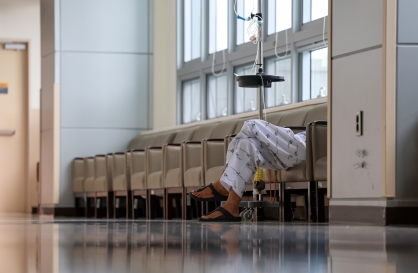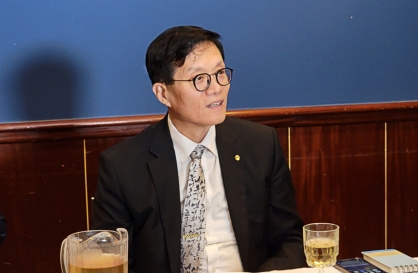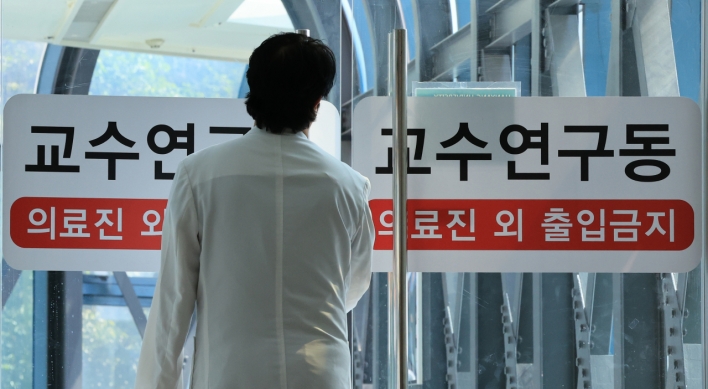Life with dementia is a constant battle for the sufferer to retain their dignity.
The brain illness that affects memory, behavior and the ability to perform even basic tasks mostly affects older people. About 70 percent of cases are believed to be caused by Alzheimer’s.
The American Academy of Family Physicians says that those suffering from dementia show signs of recent memory loss, and have difficulty performing familiar tasks and problems with language. Other symptoms include time and place disorientation, poor judgment, problems with abstract thinking, misplacing things, changes in mood, personality change, loss of initiative, hallucinations, not being able to sleep and wandering.
The severity of symptoms may differ according to person but in most cases they get worse, tiring families and other people around the patient.
The brain illness that affects memory, behavior and the ability to perform even basic tasks mostly affects older people. About 70 percent of cases are believed to be caused by Alzheimer’s.
The American Academy of Family Physicians says that those suffering from dementia show signs of recent memory loss, and have difficulty performing familiar tasks and problems with language. Other symptoms include time and place disorientation, poor judgment, problems with abstract thinking, misplacing things, changes in mood, personality change, loss of initiative, hallucinations, not being able to sleep and wandering.
The severity of symptoms may differ according to person but in most cases they get worse, tiring families and other people around the patient.

According to the Ministry of Health and Welfare, 522,000 people are suffering from dementia here, which is about 9.1 percent of the 5.7 million people aged over 65 in Korea. The portion is likely to rise as society ages. By 2050, about 16.1 million people will be over 65, and about 13.2 percent of them, or 2.1 million, will be dementia patients, the authorities said.
The World Health Organization said some 35.6 million people worldwide were living with dementia in 2010, but the figure is expected to double to 65.7 million by 2030 and triple to 115.4 million in 2050.
Dementia is expected to cause huge medical costs for the government: A single patient costs 18.5 million won a year to care for, with the total number of patients costing 8.7 trillion won. The figure is expected to top 38.9 trillion won in 2030.
Measures
“If found at an early stage, about 10-15 percent can live a normal life. And some others manage to control their development. Therefore it is extremely important to screen the disease at an early stage,” said Dr. Yeon Byeong-gil, chief of Gangdong Dementia Center in Seoul.
The government recently announced a set of plans to tackle the disease. It will establish a national dementia management committee to designate dementia-specialized clinics and hospitals.
In four large regions ― Gangwon, South Chungcheong, North Jeolla and North Gyeongsang provinces ― dementia centers, consultation centers under local public healthcare centers, and specialized hospitals will be established.
Most local administrations have also agreed to provide dementia screening tests free of charge.
Important findings and developments
A group of researchers at Sookmyung Women’s University said they have successfully identified the dementia-causing protein condensation process for the first time. They have also traced the cause of the process, which could be used as a basis to developing treatment.
Professor Ham Shi-hyun said her team found that a toxin created during the condensation process of a certain protein, amyloid beta, inside the neuron of a brain can cause dementia.
“If we could trace down to the very detail of the process, we will be able to develop treatments for not only dementia but also other protein-affected diseases such as Parkinson’s disease, mad cow disease and cancers,” she said in a press release.
Prevention
Nothing is better than prevention. The Ministry of Health and Welfare advises 10 ways to prevent dementia.
1. Always keep your hands and mouth occupied: The hands and mouth are the best tools to stimulate your brain. Use your hands often and chew foods as thoroughly as possible.
2. Use your brain: Try to learn and memorize things. Always keep the brain working to prevent the onset of dementia or at least slow its development.
3. Don’t smoke: Research suggests that smokers are 1.5 times more at risk of the disease.
4. Don’t binge drink: Excessive consumption of alcohol destroys your brain cell, making you susceptible to various illnesses including hypertension and diabetes.
5. Eat healthily: Don’t eat salty foods. Take abundant vegetables, fruits and nuts. Nuts are known to help brain function.
6. Move your body: Exercise keeps your body healthy. Exercise until you sweat for more than 30 minutes a session, more than twice a week.
7. Keep socializing: Those with depression are three times more likely to have dementia. Try mingling with people. Go to charity events or share hobbies with others.
8. Visit the nearest public healthcare center when dementia-like symptoms arise.
9. Start treatments as early as possible if you are diagnosed with dementia.
10. Maintain treatment: Dementia treatment progress isn’t visible. Therefore one can easily skip medication and other treatments. However, this will worsen the symptoms.
By Bae Ji-sook (baejisook@heraldcorp.com)
-
Articles by Korea Herald



![[AtoZ into Korean mind] Humor in Korea: Navigating the line between what's funny and not](http://res.heraldm.com/phpwas/restmb_idxmake.php?idx=644&simg=/content/image/2024/04/22/20240422050642_0.jpg&u=)





![[Herald Interview] Why Toss invited hackers to penetrate its system](http://res.heraldm.com/phpwas/restmb_idxmake.php?idx=644&simg=/content/image/2024/04/22/20240422050569_0.jpg&u=20240422150649)








![[Herald Review] Xdinary Heroes kicks off five-month-long project with solo concert, teases new album](http://res.heraldm.com/phpwas/restmb_idxmake.php?idx=652&simg=/content/image/2024/04/22/20240422050539_0.jpg&u=20240422152154)
![[Today’s K-pop] Illit logs 100m Spotify streams with debut song](http://res.heraldm.com/phpwas/restmb_idxmake.php?idx=642&simg=/content/image/2024/04/22/20240422050650_0.jpg&u=)